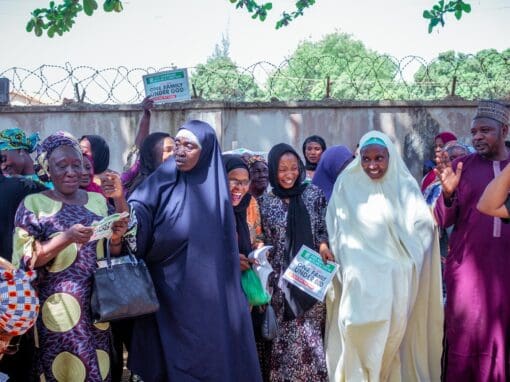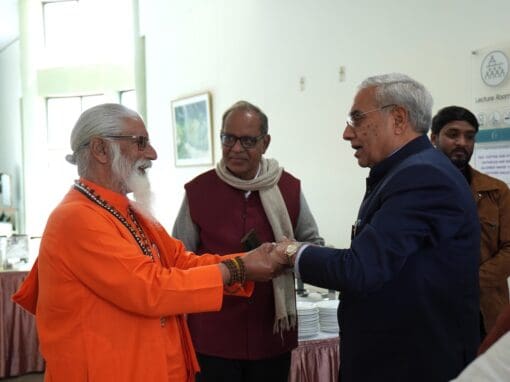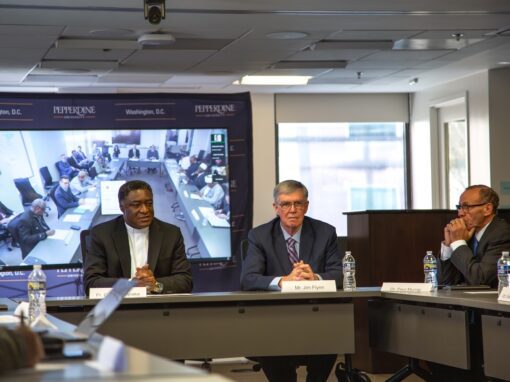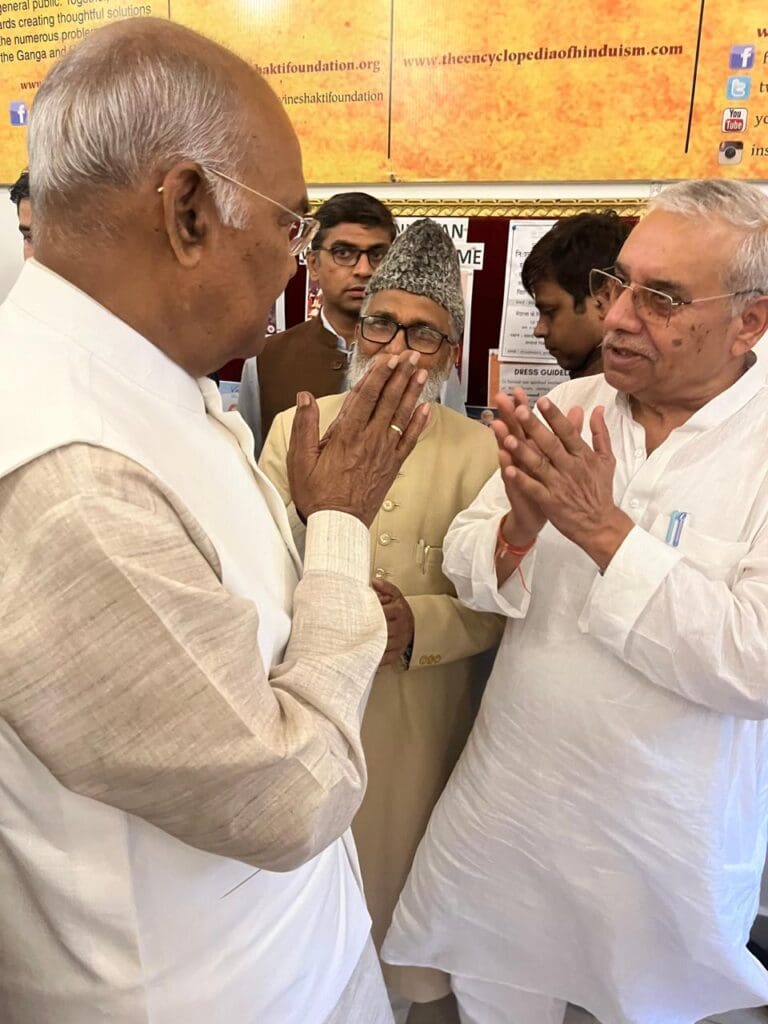
Faith leaders in India form the National Multi-Faith Action Coordinating Committee.
On the sacred banks of the Ganga at Parmarth Niketan Ashram, a milestone in interfaith collaboration was marked with the launch of the National Multi-Faith Action Coordinating Committee (MFACC) on May 29, 2025. Spearheaded by the Global Interfaith WASH Alliance (GIWA) in partnership with UNICEF India, the initiative brought together senior faith leaders, development partners, and civic organizations to forge a united front for community wellbeing and sustainable development.
The committee aims to establish a structured, inclusive mechanism for faith-based action on key national priorities: Water, Sanitation, and Hygiene (WASH), health, nutrition, education, child protection, and climate resilience. Voices from across India’s diverse spiritual landscape, including tribal and indigenous traditions, came together in a shared commitment to align values with action.
Representing the Global Peace Foundation (GPF) India, Chairman Dr. Markandey Rai emphasized the need to move from dialogue to development. Quoting the Upanishadic verse “Ekam sat vipra bahudha vadanti” (The truth is one, the wise call it by many names), he underscored the foundational Indian principle of unity in diversity. He added, “We are here not merely to discuss what faith can do, but to define how it will do it.”
The day’s highlights included a meaningful meeting between Dr. Rai and Hon’ble Shri Ram Nath Kovind, Former President of India. President Kovind acknowledged the MFACC initiative as a timely and necessary step in drawing upon India’s spiritual traditions to address contemporary challenges. During the event, two key publications were launched—“Vasudhaiva Kutumbakam,” reaffirming the timeless ethos of global unity, and the “Indo-Pacific Peace Forum Book,” a compilation of youth-led peacebuilding efforts across the Indo-Pacific region, curated by GPF India.
Reflecting on GPF India’s ongoing commitment to grassroots impact, Dr. Rai also highlighted initiatives that continue to bring faith-based values into direct service. The Facets of Faith platform fosters inclusive dialogue that moves beyond conversation to collective community engagement. The Period Awareness Drive (PAD) promotes sustainable menstrual health practices through workshops, youth outreach, and partnerships with community educators. The Vasudhaiva Kutumbakam Learning Centres provide out-of-school children—especially those from migrant and marginalized backgrounds—with access to quality education and support toward formal school integration. In the environmental space, GPF India engages youth through campaigns focused on tree plantation, clean-up drives, and ecological stewardship, rooted in the teachings of all faiths on the sacredness of nature.
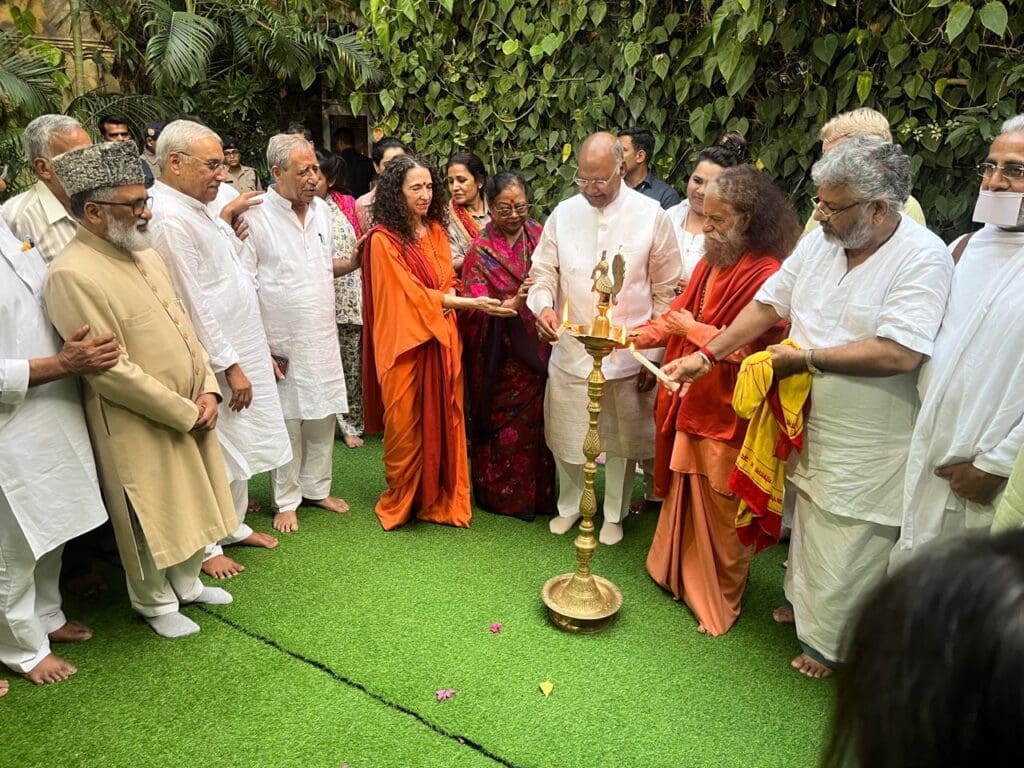
Faith leaders in India form the National Multi-Faith Action Coordinating Committee.
During the MFACC deliberations, Dr. Rai proposed a set of actionable steps to operationalize and strengthen interfaith collaboration. These included mapping existing faith-based initiatives aligned with national development goals; developing joint toolkits on hygiene, education, and climate awareness; organizing interfaith service activities across communities; and ensuring the active representation of indigenous and underrepresented faith groups. These recommendations were unanimously adopted by the committee, reflecting a shared resolve to build inclusive and value-driven action frameworks.
Importantly, the gathering also coincided with May 28, which is observed globally as Menstrual Hygiene Day. Acknowledging this, Dr. Rai reminded the assembly that no meaningful development agenda can exclude women’s voices and needs. He urged that all interfaith efforts must also champion women’s health, dignity, and empowerment as central to community transformation.
In addition to these proposals, Dr. Rai recommended further structural enhancements to sustain the committee’s momentum. These included conducting more meetings annually, establishing a Secretariat, setting up a designated office, introducing periodic reporting mechanisms, and promoting the publication of best practices from faith-led development efforts. These recommendations aim to build a sustainable, action-oriented platform that delivers real impact on the ground.
The launch concluded with a collective pledge from all participating faith leaders to work together in the service of India’s communities. As the sun set over the Ganga, the participants joined the serene Ganga Aarti, a powerful symbol of spiritual unity and shared purpose.
The formation of MFACC marks a significant step forward in aligning spiritual leadership with sustainable development. With a unified vision and a commitment to coordinated action, the committee begins its journey with deep moral grounding and practical intent. GPF India remains steadfast in its resolve to collaborate with partners across sectors, translating shared values into lasting, inclusive change.

